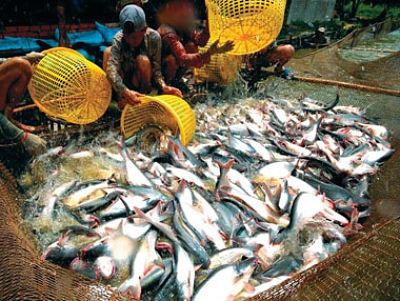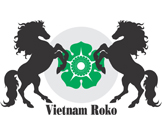In general trade relations, Vietnam is in a state of huge import deficit from the Chinese market, but agricultural products alone have a high export turnover to this market.

If well utilized, this is one of the items that can help Vietnam reduce its import deficit from China.
Exports to China continue to increase
According to estimates of the Ministry of Industry and Trade, export turnover in January 2014 was estimated at 10.3 billion USD, down 11.5% compared to December 2013 and down 10.8% over the same period in 2013. The group of agricultural and aquatic products had an estimated export turnover of $1.51 billion, down 15.8% compared to December 2013, down 21.3% over the same period in 2013 and accounted for 14.7% of the total. exports.
The reason for this situation is that January falls during Tet holiday, but there have also been strong changes in two commodity groups compared to the same period last year: seafood was estimated at 540 million USD, up 13.1%; cashew nuts reached 84 million USD, up 3%.
Mr. Dao Viet Anh, Asia-Pacific Market Department (Ministry of Industry and Trade) said that the export potential of agricultural products is still quite open, especially with the traditional Chinese market. For example, Vinamit is one of the Vietnamese agricultural product brands favored by the Chinese market. Vinamit's dried fruit products are now available in about 10 supermarket chains in China such as Walmart, Carre Four, Lotus... At Walmart alone, Vinamit's sales are about 3-5 million USD/ five.
China is currently an important export market for Vietnam's agricultural, forestry and fishery products with an average growth rate of 35.9% per year in the past 3 years. Agricultural exports account for 41% of total exports to this market, equal to 14% of imports from China. Therefore, if the amount of agricultural products exported to China can be increased, it can contribute to gradually narrowing the trade balance between the two countries. The products that Vietnam exports a lot to the Chinese market are rubber, rice, cassava and products from cassava, seafood, vegetables, cashew nuts...
The reason why Vietnamese agricultural products are increasingly favored by China is because Vietnam and China have close geographical locations, and have certain similarities in the habits of using goods and food. In addition, in the context of scandals about counterfeit goods, counterfeit goods, unsafe food products, affecting the health of consumers, Chinese people are tending to switch to imported products instead of using domestic products, in which Vietnamese goods are one of the options.
Businesses need to pay attention to market information
"China is not a very demanding and strict market for imported agricultural products," said Mr. Dao Viet Anh (Ministry of Industry and Trade). However, with Vietnam's current level of deep integration, businesses also need to pay attention to regulations and specific characteristics of this market to take advantage of advantages to boost exports. agricultural products into China.
Mr. Nguyen Lam Vien - Chairman of Vinamit's Board of Directors said that although dried fruit is a very popular product in the Chinese market, few people know that, at the first time, when choosing dried fruit as a product to infiltrating China, many people think that this is a crazy decision. Because dried fruit is a completely new product, no Vietnamese enterprises have yet produced and exported to this market.
However, by being determined to pursue the product seriously, from learning about dried fruit products to investing in modern technology, and gradually entering the market starting with the wrong paths. the most difficult such as bus stations, sidewalks... Vinamit's products have gradually won the trust of consumers and then properly entered the large retail supermarket systems.
To do this, according to Mr. Vien: First, the product must match the needs of the Chinese people. Second, the goods must ensure food safety and hygiene. Third, products must be registered trademarks to avoid being counterfeited or counterfeited. Fourth, goods should be exported through official channels to take advantage of tariff preferences and be able to work long-term with reputable partners. Fifth, must be serious and persistent in putting goods into distribution systems.
"The most difficult thing for exporters, especially when working with the Chinese market, is the lack of market information as well as the legal basis for trading activities. Currently, in each foreign market, we have an agency. This is an effective "bridge" for agricultural products in particular and Vietnamese exports to the Chinese market in general," said Mr. Vien.
The ability to export agricultural products to China will be further expanded because on October 13, 2013, on the occasion of the official visit to Vietnam by Chinese Premier Li Keqiang, authorized by two Chinese Prime Ministers, Mr. China and Vietnam, the Minister of Industry and Trade of Vietnam and the Minister of Commerce of China signed an Agreement between the Governments of the two countries on the establishment of trade promotion offices in each country.
Whereby
The Vietnamese side will open a trade promotion office first in Chongqing city and then in some other localities of China. This is an opportunity for Vietnam to further promote agricultural exports to this large and potential market.
According to Banking Times - Lan Phuong




